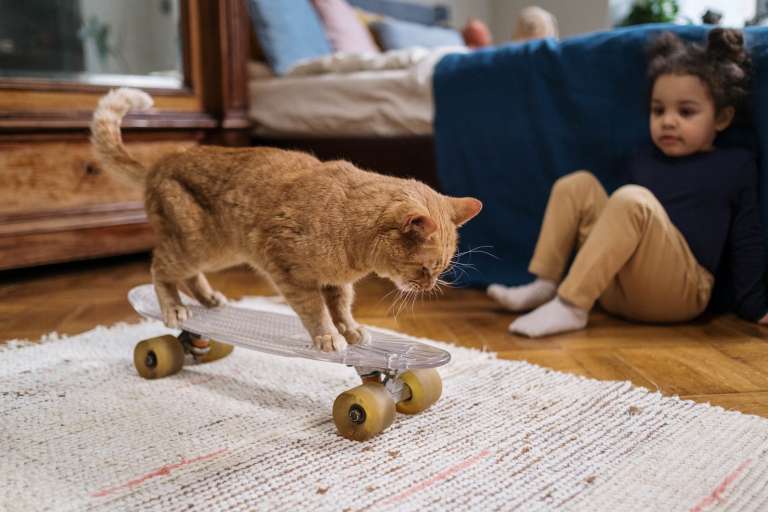Parenting is one of the biggest challenges anyone can take on. It’s a full-time job that comes with no instructions. That’s why we’ve created this comprehensive guide for new parents! In this guide, you’ll find everything you need to know about caring for a newborn or a toddler, from feeding and bathing them to enlightening them in their early childhood. We’ll also provide tips on navigating the challenges of becoming a new parent.
Table of Contents
How do we get started in the first few weeks?
First of all, you need to adjust to your new roles. You’re not just a mom or dad now, you’re a parent! And that comes with a lot of new responsibilities. The most important thing you can do is learn as much as you can about caring for your baby. This means reading up on the subject, talking to experienced parents, and listening to your pediatrician’s advice.
You’re also going to have to get used to the fact that you won’t be getting much sleep for the first few months. Babies need to eat every two to three hours, which means many late-night feedings. And even when they start sleeping through the night, they’ll still wake up early. So make sure you get help from your partner, family, and friends when you can.
Tips for New Parents:
1. Get plenty of rest when your baby sleeps so you can be well-rested when they’re awake.
2. Set aside some time for yourself each day, even if it’s just a few minutes.
3. Find a support group for new parents so you can share your experiences and get advice from others who are going through the same thing.
4. Be patient with yourself and your partner—it takes time to adjust to this new life stage.
5. Don’t hesitate to ask for help when you need it.
6. If there is any nice product like a *nursing chair that can make you feel better, go get it.
How to feed a newborn?
Babies need to eat frequently, about every two to three hours. They’ll usually start out by drinking small amounts of breast milk or formula, but will gradually increase the amount they consume as they grow. You don’t have to stick to breastfeeding as the formula can also be healthy.
*You can also combine breastfeeding with formula. By the time they’re 6 months old, they’ll be eating solid food in addition to breast milk or formula.
It’s important to learn how to properly prepare and store breast milk or formula, as well as how to *sterilize bottles and nipples. You should also be aware of the signs that your baby is hungry so you can feed them before they get too fussy.
*How to change a diaper?
You’ll need to change your baby’s diaper several times a day, especially in the beginning. It’s important to learn how to do it properly so you can avoid irritation, infection, diaper blowout, and leaks. You should also have a good supply of *diapers on hand so you don’t have to worry about running out.
How to bathe a baby?
It’s important to bathe your baby at least once or twice a week, but you don’t want to overdo it. too much bathing can dry out their skin. When you do bathe them, make sure the water isn’t too hot and use gentle, fragrance-free soap. You’ll also want to keep a close eye on them while they’re in the tub, as they can easily slip under the water.
*How to dress a baby?
It’s important to dress your baby in clothing that’s comfortable and not too tight. You’ll also want to avoid putting them in clothes with small buttons or other decorations that they could choke on. In the winter, it’s important to keep them warm but not too bundled up so they don’t overheat. Babies’ body temperature is usually different from adults. You can feel if they are hot by putting your hand on their neck instead of hands and feet.
About sleeping
Babies need a lot of sleep, about 16 hours a day. They usually sleep for short periods of time during the day and longer stretches at night. You should create a safe sleep environment for your baby by using a firm mattress and keeping soft objects and loose bedding out of the crib. You should also avoid letting them sleep on their stomachs to reduce the risk of SIDS. If you want your baby to *fall asleep in a short time at night, it’s really important to be able to keep a consistent routine before bedtime. You can always *take them for a bath and *read to them before you put them back on their *bassinet or crib. Or you can always sing a lullaby to lull them to sleep.
Later, as your baby grows into a toddler
Later, as your baby grows into a toddler, you may spend less time on daily care and more time playing outdoors with your child, helping them develop habits that help them live independently, teaching them to control their emotions, broadening their cognition, etc. However, the basic needs of a human child do not change much from infancy to toddlerhood. They will still need plenty of love, attention, nutrition, sleep, and stimulation. It can be easy to lose sight of the simple things that are most important to our children’s development. By taking the time to provide your child with the basic necessities of life, you are laying the foundation for a healthy intimate relationship between you and your baby.
How to feed a toddler?
As your child starts to take solid foods, you can introduce them to new flavors and textures. It’s important to make sure they’re getting enough nutrition. Toddlers need a variety of different foods to stay healthy. They should eat a mix of fruits, vegetables, whole grains, and protein-rich foods. You can also give them yogurt, cheese, and milk for calcium. It’s important to avoid giving them sugary drinks or snacks, as well as processed foods.
There is a huge chance that your child might be a picky eater as is very common in toddlers, and there are a few things you can do to deal with it:
1. Offer a variety of foods: It’s important to offer your toddler a variety of foods, as this will help them develop a more varied palate. Try to offer a mix of fruits, vegetables, proteins, and grains at each meal.
2. Let them choose: Whenever possible, let your toddler choose what they want to eat. This will help them feel more in control and may make them more likely to eat the foods you’ve offered.
3. Be patient: It’s important to be patient with your toddler and not force them to eat anything they don’t want to. Just keep offering new foods and eventually they’ll find something they like.
When to start potty training?
Most children are ready to start toilet training between 18 and 24 months old. But every child is different, so it’s important to watch for signs that your child is ready to start. These can include staying dry for longer periods of time, showing an interest in the toilet, and being able to follow simple instructions. There’s no one right way to potty train a toddler. Some children learn quickly, while others take longer. The most important thing is to be patient and consistent with your child.
Give enough stimulation
Babies need stimulation to help them develop. This can come in the form of talking to them, reading to them, playing music for them, playing games invented by you, or even taking them out to play in nature. If you have no idea how to spend quality time at home with your child, you can turn to tons of *toys and *books that are both educational and fun in the market. You can start early, as babies’ brains are developing rapidly in the first few years of life.
What is the best way to discipline my toddler?
There is no one “right” way to *discipline a toddler, but there are some general guidelines you can follow. First, it’s important to be patient and consistent with your disciplinary techniques so your child can learn effectively. Second, avoid using physical punishment, such as spanking or hitting. Third, try to use positive reinforcement, such as praise or stickers, to encourage good behavior. Finally, make sure your toddler understands what they did wrong and why it was wrong. It’s important to set limits and let them explore the world freely within. But outside the limits you hold on to, there should be no acceptance and tolerance.
How to train a toddler to be independent in life?
When babies are able to walk, they can begin to do many things on their own like put on their own clothes and clean up their toy room. It helps them feel confident and capable, and can also make your life a lot easier! There are a few simple things you can do to encourage your toddler to be more independent:
1. Give them choices: Whenever possible, give your toddler choices. For example, ask them if they want to wear a blue shirt or the green shirt. This will help them feel like they have some control over their life and can make decisions for themselves.
2. Encourage them to do things on their own: Whenever your toddler tries to do something on their own, such as putting on their shoes, praise them and encourage them to keep going. This will help them feel proud of their accomplishments and encourage them to keep trying new things.
3. Let them make mistakes: It’s okay if your toddler makes a few mistakes while they’re learning to be independent. In fact, it’s actually beneficial! Making mistakes is how they learn and grow, so don’t be too quick to intervene. Just be there to support them and help them recover from their mistakes.
4. Put them in a safe place to practice: You can put them on their *pack n play, *playpen, or their own *table and desk to practice.
5. Be patient: Learning to be independent takes time, so be patient with your toddler. They’ll get there eventually! Just keep encouraging and supporting them, and they’ll eventually become more independent little people.
How much time should a toddler spend outdoors?
There is no definitive answer to this question, as every child is different. However, most experts agree that toddlers should spend at least an hour outdoors each day. This can be broken up into smaller increments of time, such as 15 minutes in the morning and 15 minutes in the afternoon. It’s important to make sure your toddler has plenty of time to explore and play outdoors, as this is crucial for them to have enough fresh air and exercise.
There are endless outdoor activities that toddlers can enjoy. Some of the most popular include playing in the park, going for a walk or bike ride, visiting the zoo, and exploring the beach or woods. Outdoor activities provide a great opportunity for toddlers to explore their world.
Summary
Becoming a new parent comes with a lot of challenges. From learning how to care for a baby to dealing with a toddler in annoying two, it’s easy to feel overwhelmed. However, there are a few things you can do to make the transition easier. This complete guide will teach you parts of parenting things that you need to know, from survival tips to expert advice. Hopefully, with this guide, you’ll be more prepared for whatever challenges come your way.




Leave a Comment